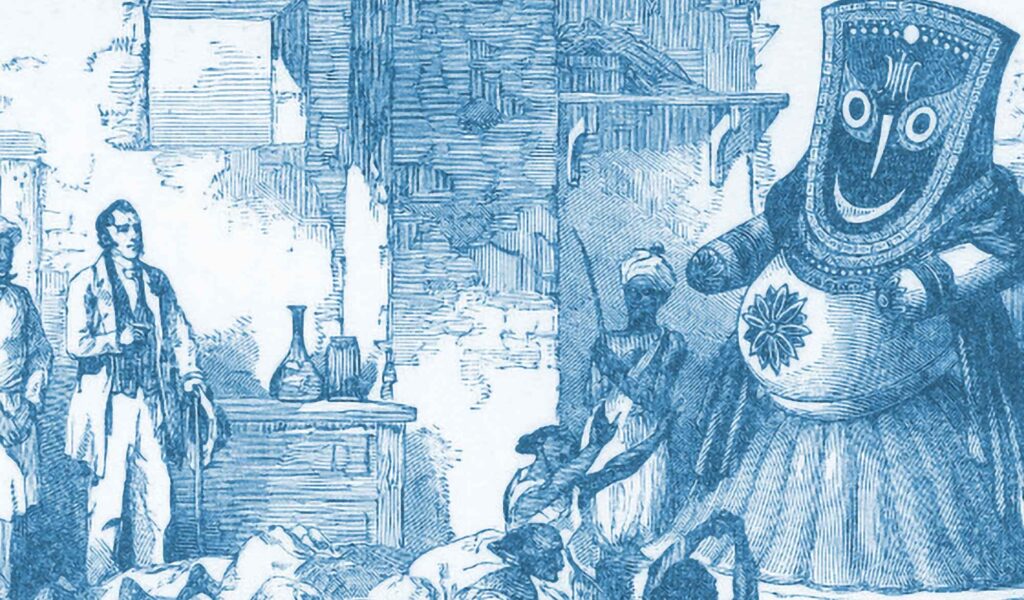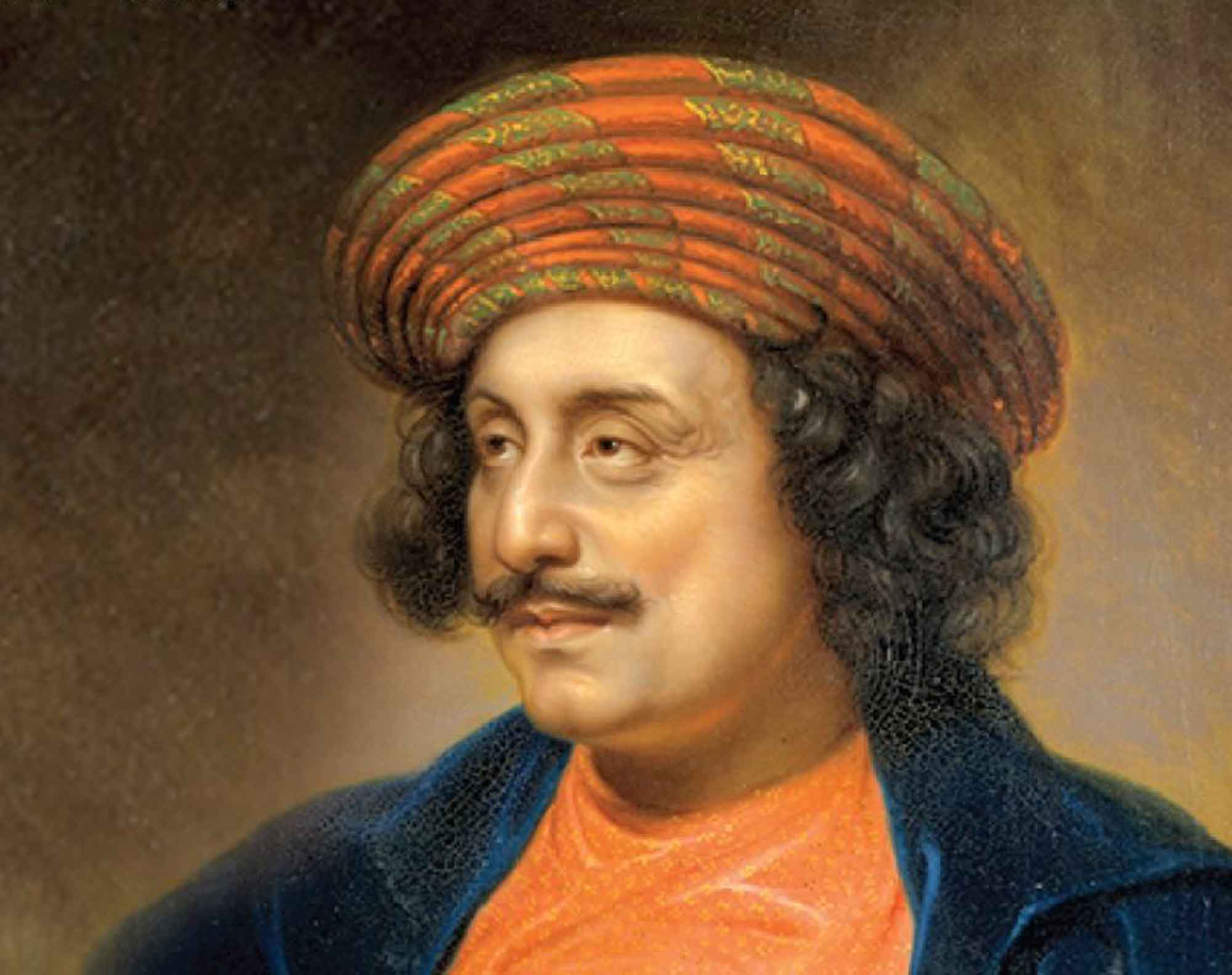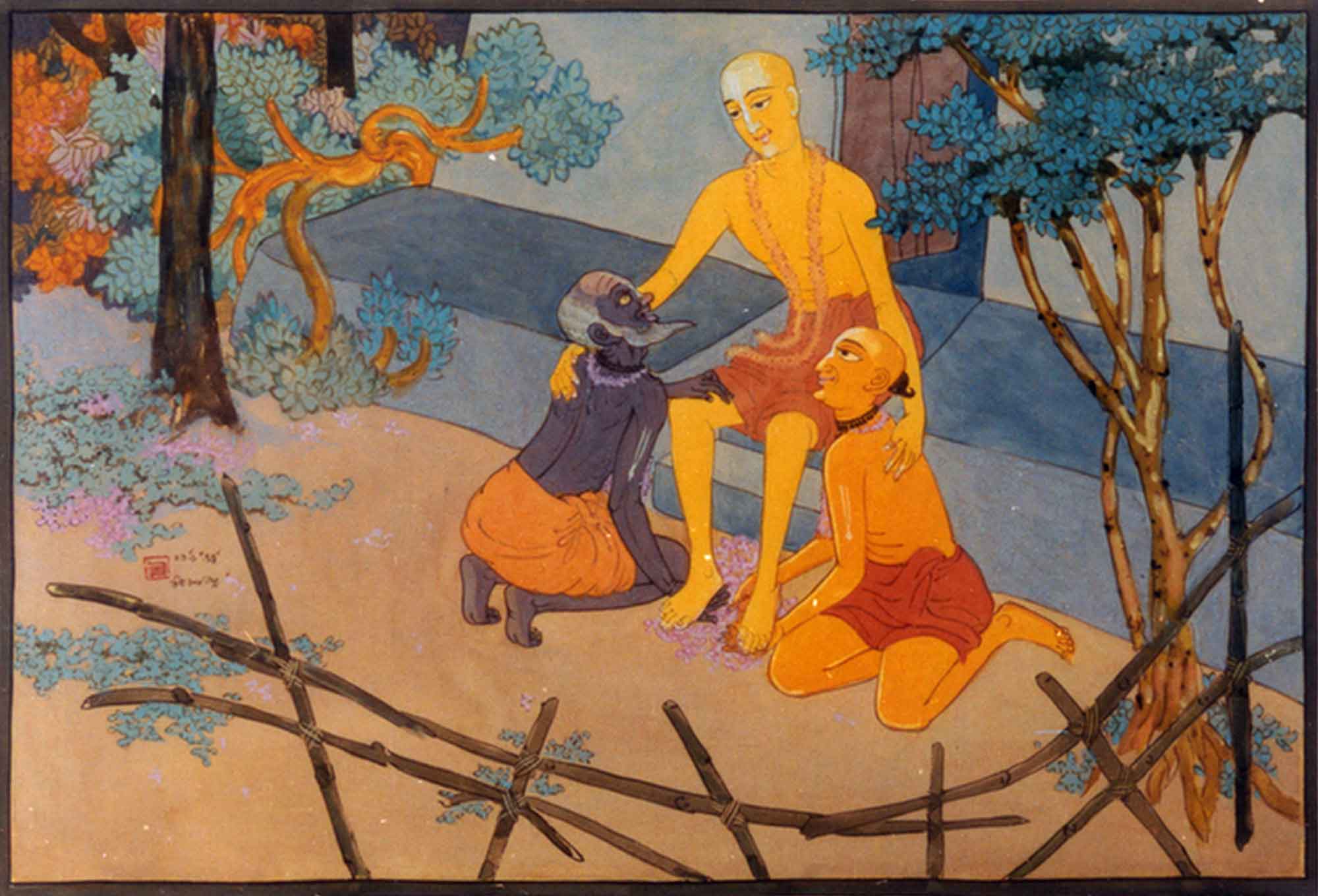Overview
Vaiṣṇave Jāti-buddhi (Conceiving of Caste Distinctions in Vaiṣṇavas) was first published in 1897 in Sajjana Toṣaṇī, Vol 9, Issue 1. Bhaktivinoda Ṭhākura warns his readers of the dangers of meditating upon the caste or birth of a Vaiṣṇava, explaining how high birth in a Vaiṣṇava family does not guarantee purity, and the low birth of a Vaiṣṇava should not be considered.
(Translated by Gaudiya Vedanta Publications)
In Śrī Caitanya-Bhāgavata, Śrī Vṛndāvana Dāsa Ṭhākura has written:
ye se kule vaiṣṇavera janma kene naya
tathāpi sarvottama sarva-śāstre kaya
ye pāpiṣṭha vaiṣṇavera jāti-buddhi kare
janma janma adhama yonite ḍubi mare
(Śrī Caitanya-bhāgavata, Madhya-khaṇḍa, 10.100, 102)
The meaning of this verse is as follows: “There is no flaw in the bhakti of a person who has developed genuine attachment to serving Śrī Viṣṇu, regardless of which dynasty he has taken birth in. All the scriptures have declared that Vaiṣṇavas are superior to those who are intoxicated by their good lineage and respectable caste, or by their distinguished work or vast wealth, even if they are of the highest birth. The living entity’s eternal goal is to awaken kṛṣṇa-prema, and worldly considerations of high and low cannot effect one’s progress toward attaining that prema. If someone perceives that, externally, a particular Vaiṣṇava was not fortunate enough to have been born in a high caste or to belong to a respected lineage, or that he is poverty-stricken, then that person’s attachment to sinful activities will increase immensely. Moreover, his outlook will degrade his consciousness so much that he will subsequently have to take birth in the lowest of species.”
The purport of these statements is extremely profound. Because of the way the people of today have come to behave, it is impossible for me to imagine that they will ever be able to offer Vaiṣṇavas proper respect without first understanding that purport. Through these statements, Śrīla Vṛndāvana dāsa Ṭhākura wished to impress upon us that one should never consider a pure Vaiṣṇava to be underprivileged in any way, no matter what dynasty he has appeared in. The scriptures unanimously affirm that if someone has become a pure Vaiṣṇava, he is truly the greatest of all personalities. A pure Vaiṣṇava should never be considered lowly on account of his birth within a low caste. Only those who are heinously sinful adopt such a conception, and as a consequence they wander amidst the lowest forms of life, birth after birth.
There is no separate caste known as the “Vaiṣṇava caste”. If someone takes full shelter of śuddha-bhakti then he alone is known as a Vaiṣṇava, regardless of his birth in a brāhmaṇa, kṣatriya, vaiśya, śūdra or even antyaja (outcaste) dynasty. It is inappropriate to try to ascertain the extent of his value based on his caste. But in the age of Kali, people are extremely selfish. They have created a caste masquerading as ‘vaiṣṇava-dharma’ and have declared that only those who take birth in that caste can be called Vaiṣṇavas. Such behaviour is abominable.
The stratification of society into separate castes and varṇas – namely, brāhmaṇa, kṣatriya, vaiśya and śūdra – exists to maintain the proper execution of all worldly transactions. But there is no confluence between paramārtha-dharma (absolute spirituality) and such stratification. Essentially, paramārtha-dharma is perpetually resting on and grounded in the determination (niṣṭha) of each individual. One who, by some good fortune, develops faith (sraddhā) or confidence (viśvāsa) in exclusive devotional service to Śrī Bhagavān is indeed pāramārthika, an absolute spiritualist. Neither his caste nor the duties and codes of conduct prescribed for him according to his varṇa play any role in his spiritual practices. Anyone who, absorbed in hypocrisy and faultfinding, busies himself declaring that a genuine spiritualist took birth in a low class family is extremely sinful.
There is no such thing as Vaiṣṇava-ancestry (vaiṣṇava-vaṁśa). Ancestry cannot guarantee that one will become a Vaiṣṇava. We find that even within various ‘vaiṣṇava-vaṁśas’, many individuals have taken birth who are a disgrace to their dynasty and who behave like demons. On the other hand, many great souls have taken birth in the families of dog-eaters (caṇḍālas) and barbarians (yāvanas), yet they became Vaiṣṇavas on the strength of practising pure bhakti. In fact, it is seen that many non-Vaiṣṇavas have even taken birth in the dynasties of Vaiṣṇava ācāryas, while many Vaiṣṇavas have taken birth in extremely irreligious dynasties. Therefore, any respect or honour that comes with the reputation of being born in a so-called Vaiṣṇava-caste or in being a direct descendent of a Vaiṣṇava ācārya, can never add dignity to true vaiṣṇava-dharma. Instead, it only increases the rivalrous moods that are antithetical to the principles of Vaiṣṇavism. And the root cause of that rivalry is nothing but selfishness and incompetence.
O readers! To the exact degree that you honour and respect a pure Vaiṣṇava in accordance with the awakening of bhakti within him, disregarding any apparent shortcoming in his birth, you will be liberated from the mundane conception that Vaiṣṇavas belong to any worldly caste.
There is no other way to attain bhakti than through the association of pure Vaiṣṇavas. Yet if we associate with anyone and everyone considering them to be Vaiṣṇavas, or if we dishonour a genuine Vaiṣṇava by calling attention to the inferiority of the dynasty in which he was born, then we will be left with no hope of attaining the association of a pure Vaiṣṇava. It is therefore imperative that we become unbiased and simple in all activities. If you dread being in a state of self-deception, then you should never adopt the belief that a Vaiṣṇava belongs to some mundane caste.













